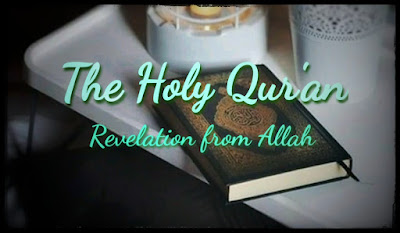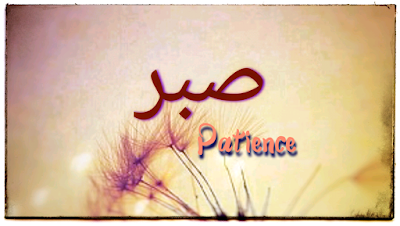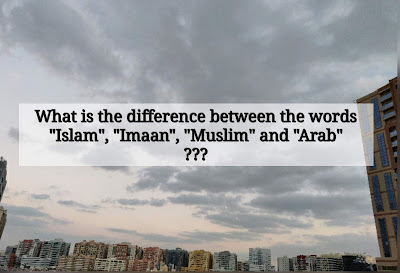The Holy Qur'an - Revelation from Allah

Waḥy (Arabic: وحي, also spelled as wahi) is the Arabic word for revelation.
The Quran (Arabic: القرآن, Al-Qurʾan Arabic pronunciation literally meaning "the recitation"; also romanized Qur'an or Koran) is the central religious text of Islam, which Muslims believe to be a revelation from God (Allah). It is widely regarded as the finest work in classical Arabic literature. The Quran is divided into chapters (Arabic: سورة surah,), which are subdivided into verses (Arabic: آية ayah, plural آيات ayat ).The Quran is the holy book of Islam and is viewed by Muslims as the direct word of Allah, the series of revelations from Allah that included the Torah, the Injil and the Bible. The Quran is significant not only because of its history but also because of its continual daily use in Muslim worship.
Scripture is the most important type of revelation for Muslims. The Qur'an is regarded as a special revelation from Allah to Prophet Muhammad SAW. It was revealed to him in Arabic. The Qur'an is therefore different from any other book for Muslims because it contains the words of Allah.
The first Surah was revealed in Makkah in the cave of Hira (Makkah) that was night of Lailatul-Qadr (Night of the Power) in the month of Ramadhan. and the last Surah was revealed in the city Madinah.
Muslims regard the Quran as Muhammad SAW's most important miracle, a proof of his prophethood, and the culmination of a series of divine messages starting with those revealed to Adam (Peace be upon him) and ending with Muhammad SAW.
The word "Quran" occurs some 70 times in the Quran's text, and other names and words are also said to refer to the Quran.
The Quran confirms the revelations given to earlier Prophets, though these might not be accessible to us, in the form they were originally revealed. The most sublime language and a rational message that directly appeals to the human heart have caused this Divine book to move nations and civilizations.
Who wrote the Quran?
After the death of the Prophet Muhammad, the entire Quran continued to be remembered in the hearts of the early Muslims. Hundreds of the early Companions of the Prophet Mohammad SAW had memorized the entire revelation, and Muslims daily recited large portions of the text from memory. Many of the early Muslims also had personal written copies of the Quran recorded on various materials.
Ten years after the Hijrah (632 C.E.), many of these scribes and early Muslim devotees were killed in the Battle of Yamama. While the community mourned the loss of their comrades (fellow members), they also began to worry about the long-term preservation of the Holy Quran. Recognizing that the words of Allah needed to be collected in one place and preserved, the Caliph Abu Bakr ordered all people who had written pages of the Quran to compile them in one place.
Importance of reciting the Holy Qur'an:
The rewards of reciting the Quran are many:
➤Prophet Mohammad SAW also commanded us in many hadith to recite the Qur'an because it will intercede for you on the Day of Judgement.
➤Recite the Holy Qur'an and memorise it, Allah will not punish the heart in which the Qur'an is placed.
Allah Almighty said about Quran: “This is the Book (the Quran), whereof there is no doubt, guidance to those who are Al-Muttoon [the pious]” (Quran, 2:2)
Our beloved Prophet (SAW) said: “Verily the one who recites the Quran beautifully, smoothly, and precisely, he will be in the company of the noble and obedient angels. And as for the one who recites with difficulty, stammering or stumbling through its verses, then he will have TWICE that reward.”
(Sahih Al-Bukhari).
JazakAllah Khair





Thank you for the amazing topic
ReplyDelete